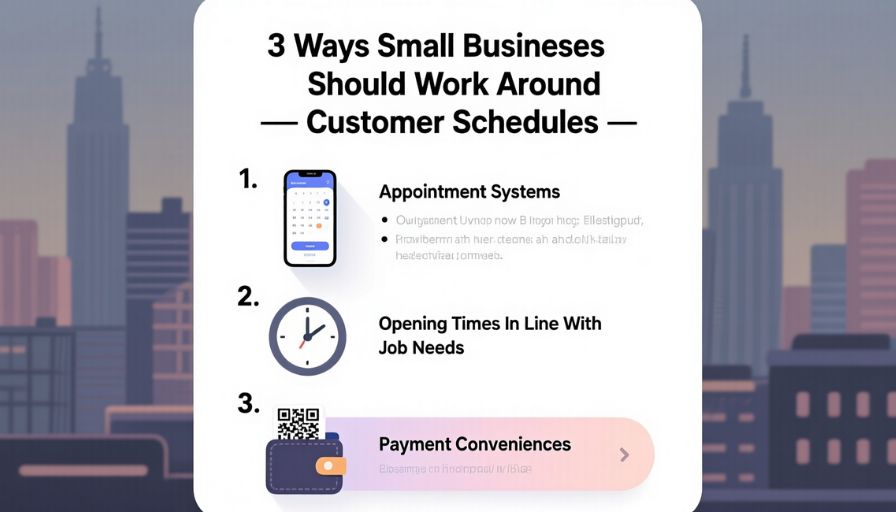It’s an odd proposition to think about, but a business can have the best product or service in the world, a top-tier team, and an incredible marketing plan, yet still find themselves falling short on customer service. A big reason for this is that customers today have busy, complicated lives with a lot going on, and your company is only a tiny fragment of that. This means a business that only operates on its own schedule without considering the needs of its clients might find it’s losing out on opportunities.
This can feel like a small thing, but a customer who has to jump through hoops to buy something or get a service from you might just give up and go somewhere else that makes the process easier or can accommodate them. Now, you can’t account for every single whim if you hope to sell to more than one person of course, but it’s still a good idea for any small business to think carefully about what their customers’ lives are like.
If you do, being accommodating and flexible is a powerful way to show you value people and their time. A little bit of flexibility goes a long way, so they say, especially in building trust and keeping people coming back for more. In this post, we’ll consider how your business should work around customer schedules.
Appointment Systems
You could consider moving away from a drop-in-and-wait model to a more structured appointment system. This gives your customers control over their time and helps them plan their day without worrying about long waits. Moreover, offering an online booking system that they can access at any time is a wise, especially if you offer an app or online system.
This allows people to schedule a time that works for them, which could be late at night or early in the morning when a business is normally closed for special requests. An automated system can also send reminders to people, which helps cut down on no-shows and makes sure you won’t waste your time.
Payment Conveniences
Making it easy for people to pay for things sounds obvious, but if you’re not focused on it, sometimes payment processors could be unreliable or not equipped for your own needs. People are carrying a lot less cash now and they expect to be able to pay with cards or their phones. A business should want to offer a wide range of payment options to take away any friction at the point of sale. You could also set up different ways to pay online, so it’s a good idea to consider getting solid merchant account services that allow for all kinds of payment processing. This makes the transaction smooth and fast, which is something every customer appreciates.
Opening Times In Line With Job Needs
The usual nine-to-five schedule doesn’t work for everyone anymore. A lot of your customers might have jobs that make it difficult for them to visit your business during certain hours if they work this shift. Sure, remote work and days off in the week is more common, but not always. As such, you could consider adjusting your opening times to accommodate people who have to work during the day. This could mean opening a little earlier a few days a week or staying open a bit later on others, like on the weekend. A business might also offer appointments they’ll open up for if they’re important enough, which gives people a chance to visit when they don’t have to worry about work. Consider how to be the most flexible and where you could be losing out on revenue otherwise.
With this advice, you’re certain to work around customer schedules well.
